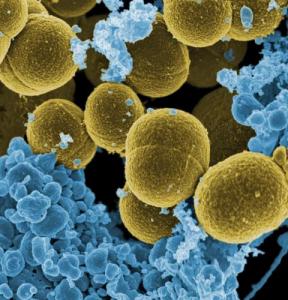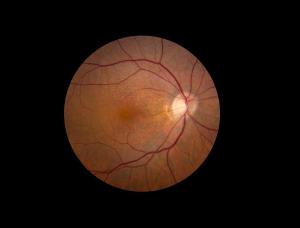Health
On ‘Zero Discrimination Day’ UN urges tackling everyday biases; ask yourself ‘what if...?

HIV positive Monica and her granddaughter sit at home on a bed in their village of Makuzeze, Zimbabwe.
- Read more
- 316 reads
NIH pilot project will match researchers to genes, gene variants of interest
Databases such as the 1000 Genomes Project and the Exome Aggregation Consortium (ExAC) harbor large numbers of genotypes (an individual’s collection of genes).
- Read more
- 323 reads
Researchers use cigarette smoking behavior to identify genes that regulate blood pressure
Using a technique that is opening the door to more complex analyses of the human genome, researchers have identified dozens of new genetic variations that affect blood pressure. Scientists discovered the new genetic regions — and confirmed the role of many previously known ones — by looking specifically at cigarette smoking behavior, one of many lifestyle factors that impact blood pressure.
- Read more
- 393 reads
U.S. hospitals testing experimental therapies to prevent two common bacterial infections

Scanning electron micrograph of S. aureus bacteria escaping destruction by human white blood cells.
- Read more
- 354 reads
NIH researchers find a potential treatment for disorders involving excess red blood cells
Researchers at the National Institutes of Health have cured mice with Chuvash polycythemia, a life-threatening disorder that involves the overproduction of red blood cells. They treated the mice using Tempol, an experimental drug being studied for treatment of diabetes, cancer and other diseases. The findings offer hope that Tempol or a similar drug may treat polycythemias that affect humans, such as mountain sickness—a serious blood complication experienced in low-oxygen, high-altitude settings.
- Read more
- 343 reads
NIH launches international study of AMD progression

Fundus photo shows giraffe-like macular pattern in the retina of a person with reticular pseudodrusen
- Read more
- 368 reads
NIH program to accelerate therapies for arthritis, lupus releases first datasets
Datasets characterizing individual cells in rheumatoid arthritis and systemic lupus erythematosus disease tissue from the Accelerating Medicines Partnership for Rheumatoid Arthritis and Systemic Lupus Erythematosus (AMP RA/SLE) Phase I study are now available to the research community.
- Read more
- 341 reads
PHAT Life: Effective HIV intervention for youth in the criminal justice system
A group risk-reduction intervention that uses role-playing, videos, games, and skill-building exercises to promote knowledge about HIV/AIDS, positive coping, and problem-solving skills for high-risk teens in the juvenile justice system, showed great potential for reducing sexual risk-taking. The findings were published in Health Psychology and funded by the National Institute on Minority Health and Health Disparities (NIMHD), part of the National Institutes of Health.
- Read more
- 387 reads
World leaders join new drive to beat noncommunicable diseases
WHO is announcing a new high-level commission on February 16, comprised of heads of state and ministers, leaders in health and development and entrepreneurs. The group will propose bold and innovative solutions to accelerate prevention and control of the leading killers on the planet – noncommunicable diseases (NCDs) like heart and lung disease, cancers, and diabetes.
- Read more
- 331 reads
Epilepsy study links mossy brain cells to seizures and memory loss
A small group of cells in the brain can have a big effect on seizures and memory in a mouse model of epilepsy. According to a new study in Science, loss of mossy cells may contribute to convulsive seizures in temporal lobe epilepsy (TLE) as well as memory problems often experienced by people with the disease. The study was funded by the National Institute of Neurological Disorders and Stroke (NINDS), part of the National Institutes of Health.
- Read more
- 357 reads
Human Rights
Fostering a More Humane World: The 28th Eurasian Economic Summi

Conscience, Hope, and Action: Keys to Global Peace and Sustainability

Ringing FOWPAL’s Peace Bell for the World:Nobel Peace Prize Laureates’ Visions and Actions

Protecting the World’s Cultural Diversity for a Sustainable Future

Puppet Show I International Friendship Day 2020

